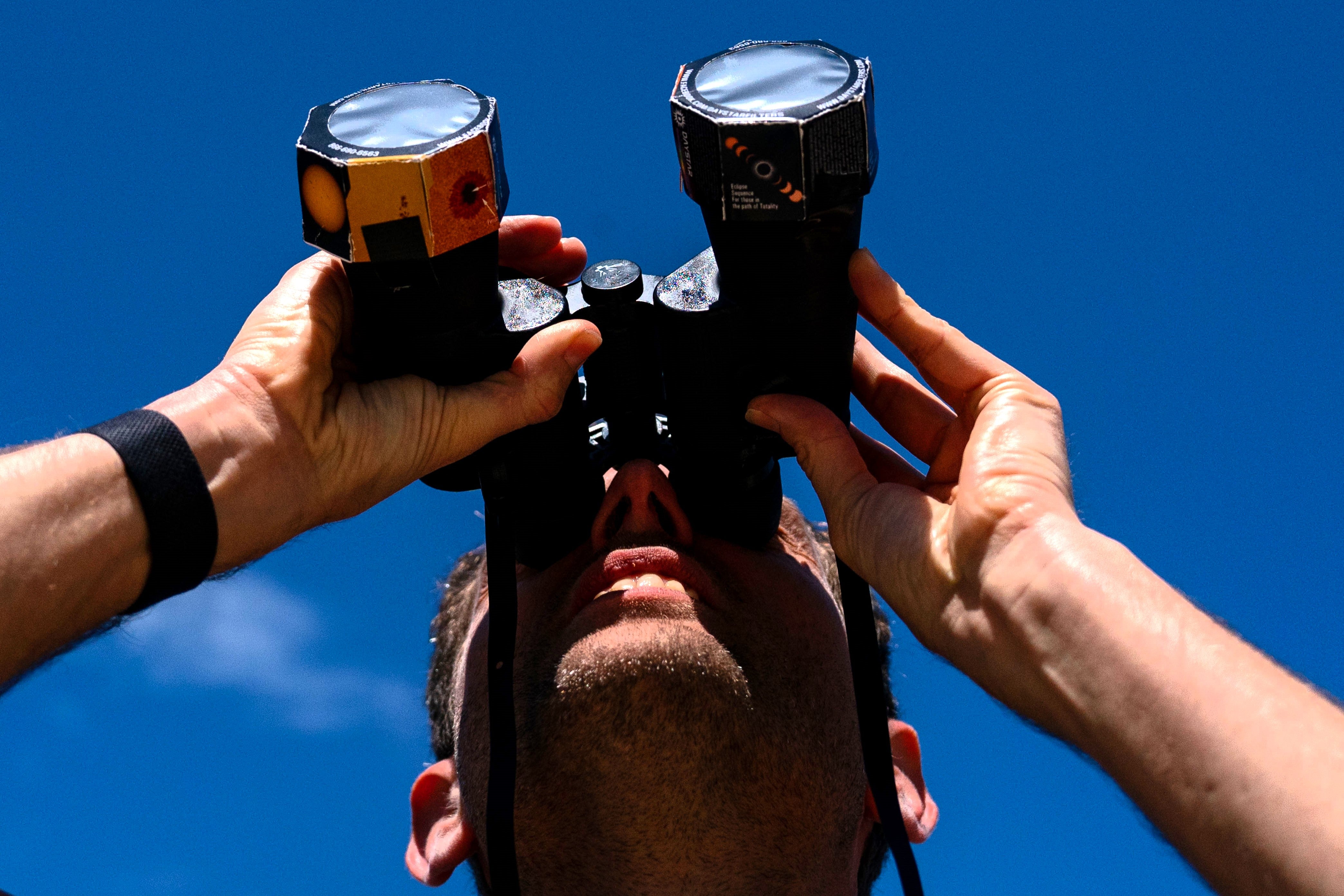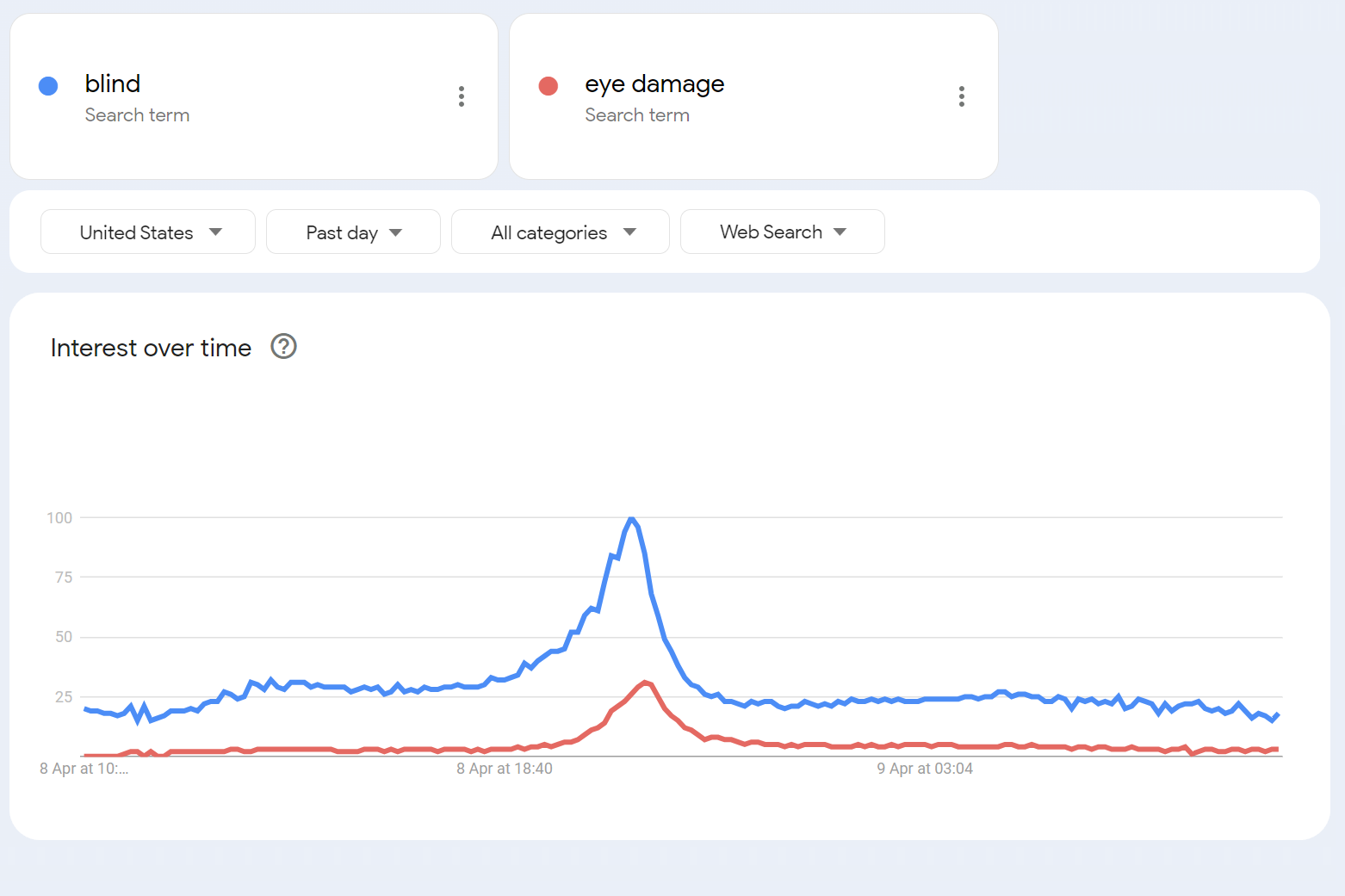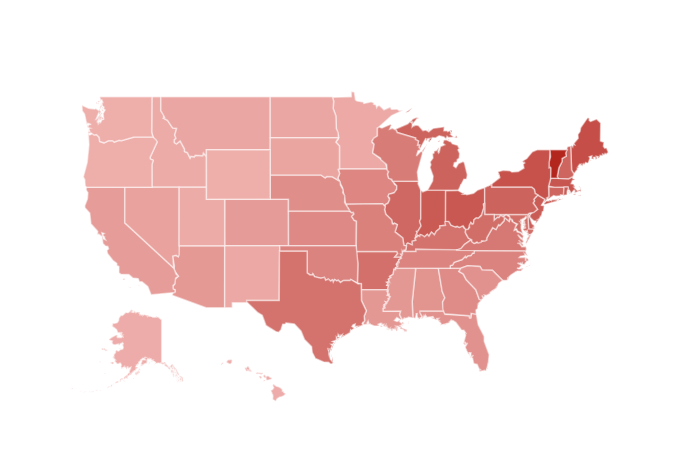Solar eclipse 2024: Searches for ‘blind’ and ‘eye damage’ surge in US
Staring at the Sun without protection causes ‘severe eye injury’, Nasa warned

Your support helps us to tell the story
From reproductive rights to climate change to Big Tech, The Independent is on the ground when the story is developing. Whether it's investigating the financials of Elon Musk's pro-Trump PAC or producing our latest documentary, 'The A Word', which shines a light on the American women fighting for reproductive rights, we know how important it is to parse out the facts from the messaging.
At such a critical moment in US history, we need reporters on the ground. Your donation allows us to keep sending journalists to speak to both sides of the story.
The Independent is trusted by Americans across the entire political spectrum. And unlike many other quality news outlets, we choose not to lock Americans out of our reporting and analysis with paywalls. We believe quality journalism should be available to everyone, paid for by those who can afford it.
Your support makes all the difference.Online searches for ‘blind’ and ‘eye damage’ have surged in the US following Monday’s solar eclipse.
The celestial spectacle could be seen throughout the country, though people were urged to take safety measures to avoid permanently damaging their eyes while looking at it.
Despite the warnings, search trends from Google show that terms like ‘retina damage’, ‘eyes hurt’, ‘can’t see’, ‘blind’ and ‘eye damage’ all spiked in the hours after the eclipse.

The US government issued warnings of the risks for anyone not wearing appropriate eye protection. People using binoculars or a telescope to watch the Moon pass in front of the Sun needed to use special filters.
Nasa said that not doing so “will instantly cause severe eye injury”, with the US space agency stating on its website that the only safe time to look at the Sun without glasses or filter was “during the brief total phase of a total solar eclipse, when the Moon completely blocks the Sun’s bright face”.
Views of the solar eclipse were best beneath the Sun’s path of totality in the north east where skies were clear.
This region was also where most people searched for terms relating to eye damage following the solar eclipse, according to Google’s data.

Optometrists said that there are two main types of injury that can occur from looking directly at the Sun: Burning to the outside of the eye, which is called solar keratitis, and damage to nerve tissue within.
Both can cause potentially irreversible sight loss or impairment.
Even the use of eclipse glasses was no guarantee that people’s eyes were fully protected, according to some reports.
One retailer reportedly issued an email to customers on Monday warning them that their glasses were not safe for viewing the eclipse.
“Dear Amazon Customer, We write to notify you of a potential safety concern with a product that you purchased on Amazon.com,” the email reportedly warned, according to local news outlet WHEC in Rochester, New York.
The affected product was reportedly the ‘Biniki Solar Eclipse Glasses AAS Approved 2024 – CE & ISO Certified Safe Shades for Direct Sun Viewing (6 Packs)’, which did not have the approval from the American Astronomical Society (AAS) despite the product’s label.”
Join our commenting forum
Join thought-provoking conversations, follow other Independent readers and see their replies
Comments